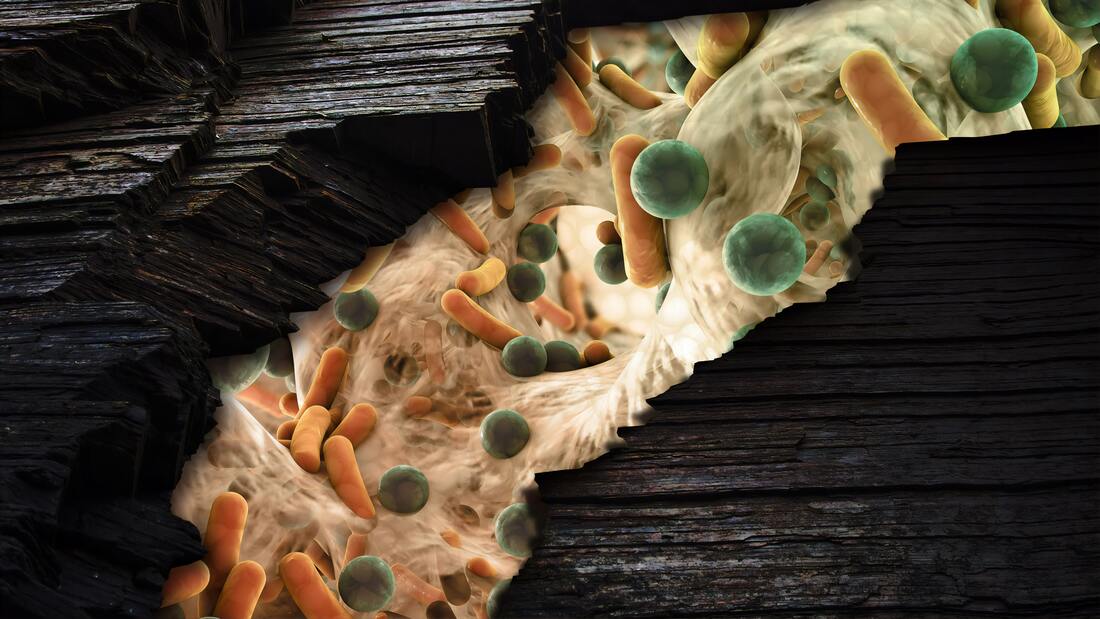|
SEARCH My Blog (Opens in new tab)
Do these 4 things to kick-start your weight loss Photo by Science in HD on Unsplash Dieting is confusing, especially when what works for your best friend doesn't work for you even when you know that you've been just as diligent. Guess what? Scientists have discovered that your gut plays a massive role in the success of dieting. A lack of dieting success could be that you are just not reducing your calorie intake enough, or that your body is adjusting to your lower energy input. If you are looking for reasons, then there is no end of answers:
But none of those answers tells you the one real solution. This answer is specific to your unique biological profile, specifically, the community of bugs in your gut. A 2016 study "Impact of the gut microbiota on inflammation, obesity, and metabolic disease" in the Journal of Genome Medicine explains why. 100 trillion bugs are working for you, and against youIt turns out that what is already in our stomach is just as important as what we put into it. The microbes that live in our gut - our mouth, esophagus, stomach and intestines - moderate how we respond to dieting. There are more than 100 trillion microbial cells in our gut, so they are a force to be reckoned with, despite only relatively recently being recognised as such. In fact, this body of bugs - the gut microbiota - is now even regarded as being a separate (endocrine) organ! So the question is: what is the relationship between the microbial ecosystem of our gut, and weight loss? The answer? It's still an inexact science, or as the researchers say "mechanisms that link specific variations in the composition of the gut microbiota with the development of obesity and metabolic diseases in humans remain obscure". Your gut bugs depend on how you were brought upHere's what we know, and how it can help you choose a diet which works best for you - specifically for you. Our gut ecosystem matures at about 5 years old. How it develops to that point is heavily influenced by gestational age, mode of delivery (natural or by Caesarean section), diet (breastfeeding or infant formula), hygiene, antibiotic exposure, environment and diet to that age. This development cycle is why some researchers believe that modern childhood epidemics such as food allergies and hay fever and asthma may be traceable to the first 5 years. Gut microbial functions related to diet influence how food is digested, the degradation of otherwise indigestible nutrients, and the development and stimulation of the immune system. When these functions don't work correctly, it can lead to fat accumulation and loss of insulin sensitivity. In turn, these problems make it challenging to lose weight and promote the development of Type 2 diabetes and cardiovascular diseases. Studies suggest that diet is the main contributing factor to obesity-associated changes in the gut microbiota. Because carrying out a controlled dietary intervention study in humans is difficult, the complex interaction between diet, age, host environment, and host genetic background in the modulation of gut microbial ecosystems is not fully understood. Nevertheless, what we do know is that the gut microbiome can rapidly respond to altered diet. The two key Ps to your healthier gutClinically, there have been many successful experiments in "fecal transfers" from metabolically healthy people to chronically obese people. The latter successfully lose weight after the transfer, as their gut biomes transform to resemble the profile of the healthy people. That's not a very palatable solution. The potential solution at the moment is your personal trial and error of (1) probiotics and (2) prebiotics. You will be familiar with probiotics, such as yoghurt, but there are many others including kefir, sauerkraut, tempeh, kimchi, miso, kombucha, pickles, traditional buttermilk, and last but not least natto. I love natto, but it is an acquired taste. Prebiotics are a newer concept, applied to starch which is resistant to breakdown in our gut until it reaches our large intestine - specifically in our colon. In this way, it stimulates the growth of beneficial bacteria in the large intestine (rather than the stomach as do probiotics). So you can see that prebiotics complement probiotics. Prebiotics are otherwise known as dietary fibre. These foods are naturally high in dietary fibre:
Here's how to activate your personal best bugsMaintaining your gut health will assist with your weight loss. If you are having trouble losing weight, then do these four things:
Want a specific program to follow?Australia's leading scientific research body has the new Total Wellbeing Diet for Gut Health program (not an affiliate link). This is an online program with recipes focused on fibre diversity to improve gut microbiota and support weight loss and wellbeing. I recommend it. If you are experiencing gut health symptoms or struggling with weight loss, then please try the four steps I have outlined above, and keep experimenting. Because the science is still evolving, it is through your own curiosity and experimentation that you are most likely to find an answer that works for you. Good luck. > More posts to help you with EXERCISES > More posts to help you with DIABETES > If you are a @MEDIUM reader my publication Body Age Buster has hundreds of categorised posts which I have written especially for men and women over 50 Follow me on Quora for more health and fitness tips.
If you valued this article >> Follow me Leave a comment >> Share it >> Stay healthy If you have any questions email me and I will get back to you. Latest: get your free customised fitness plan designed uniquely for you.
|
ChoicesSince I was diagnosed at 50 with Type 2 diabetes I've been learning how to do bone-building fitness training which lowers my age. You can too. It's your choice. Walter Categories
All
Archives
May 2023
|
 RSS Feed
RSS Feed 


